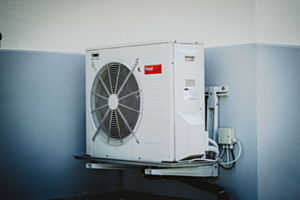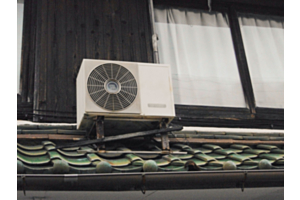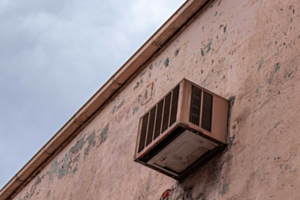Do Mini Splits Use Freon?

Part of your ductless mini split’s maintenance entails the unit being refilled with a cooling fluid in case there is a leak in the system, if not, then there is no need to replace or refill the refrigerant in the system. You wonder if that fluid happens to be freon. In today’s post, that’s exactly what we’re going to discuss. Keep reading!
What Is Freon?
Freon might sound like a chemical compound on the periodic table of elements, but it isn’t. Instead, it’s a coolant product that’s owned by The Chemours Company. Freon is halocarbon-based and is used as an aerosol propellant or refrigerant. These freon products encompass chlorodifluoromethane and/or chlorofluorocarbons.
You most often hear of freon in air conditioning systems. When poured into the air conditioner, the freon acts as the element who transports heat from the indoor unit on to the outdoor unit on the cooling mode, and from the outdoor unit on to the indoor unit on the heating mode.
Do Mini Splits Use Freon?
Okay, so if air conditioners use freon, then it makes sense that ductless mini splits would too, right? Yet not necessarily!
Ductless mini splits rely on refrigerant that passes through copper tubing between the outdoor and indoor units. The refrigerant travels through the system, moving heat from one side of the system, to the other. In the case of cooling your home, the refrigerant would be cool when it passes through the indoor air-handling unit so you get cold air in your living room or bedroom. Then the refrigerant might warm up as it arrives at the condenser only to travel through the whole loop again and become cool on the way.
Here’s the thing. Although all freon is refrigerant, not all refrigerant is freon. Only refrigerants R-503, R-502, R410A, R-22, R-13B1, and R-12 are freon refrigerants. These products all come from The Chemours Company.
There’s a chance then that yes, your ductless mini split system uses freon, but it could run on another refrigerant besides that brand.
Is Freon Dangerous?
It’s not such a bad thing if your ductless mini split is freon-free. In some cases, especially if your air conditioner is leaking, a condition known as refrigerant poisoning can follow. This type of poisoning can be caused by freon. Since freon has no strong smell and certainly no taste, it can be hard to tell that refrigerant poisoning has occurred until the symptoms are severe.
Early symptoms can include wooziness, chemical burns, coughing, frostbite if it’s a liquid freon leak, nausea, vomiting, headache, and throat and eye irritation. Those are considered mild symptoms. More severe symptoms can follow through further exposure like seizures, unconsciousness, inability to breathe, mental degradation, vomiting blood, esophageal burning, and lung bleeding. At that point, refrigerant poisoning can be deadly.
How to Prevent Freon Leaks
Maintaining your ductless mini split system is the best way to prevent refrigerant leaks. Your mini split technician will clean the unit, replace filters, and look for cracked parts and other damage. By repairing the damage right away, your mini split will continue working its best and all refrigerants will remain within the tubes inside the unit.
Sources:
https://en.wikipedia.org/wiki/Freon
https://www.healthline.com/health/refrigerant-poisoning






